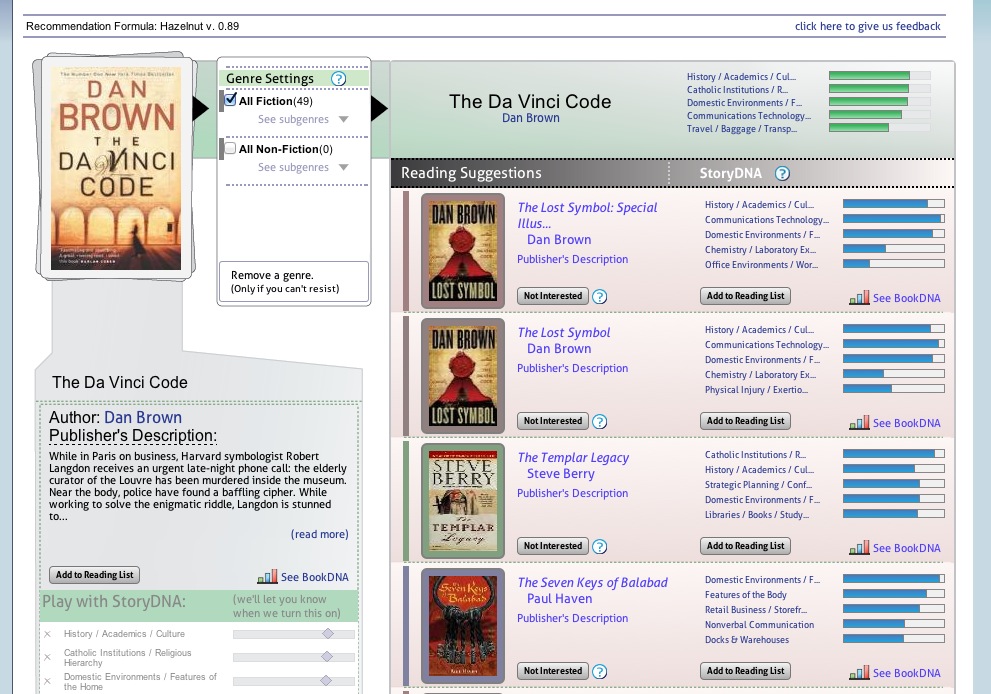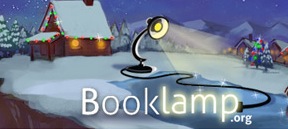Are you a big fan of Life Of Pi? Well don’t go and get the Story Of O just because they sound similar. Instead, put your query to BookLamp, a free service/project aimed at creating a database of “like” books. Similar to Pandora, the service is based on the Book Genome Project and attempts to find books that are similar based on measurable criteria. The project, founded in 2003, is trying to figure out the “DNA” of certain books by rating them based on various characteristics.
Like similar music services, BookLamp gives books different ratings based on their content. These ratings drive a recommendations engine that can For example, The DaVinci Code is filed under History/Culture, Catholic Institutions, and Travel. These traits are compared to other books and rated based on similarities.
From the website:

Sadly, the site is still fairly incomplete as it needs many more books in order to create a complete picture of many titles. The organization is working on adding more titles as we speak, which is actually quite important as we enter the era of ereaders and book rentals. I could see services like this playing an important part in future systems for book rental recommendations a la Netflix, for example, allowing folks to read multiple titles in a genre without the hit or miss of current book discovery and marketing.
